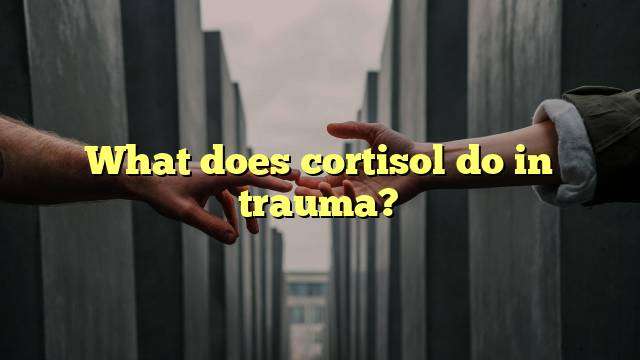What Does Cortisol Do During Trauma?
Cortisol is a hormone that is released into the bloodstream during times of stress and trauma. It is an essential hormone that helps the body respond to and recover from traumatic events. This article will discuss the role of cortisol in trauma, as well as its effects on the body and brain.
What is Cortisol?
Cortisol is a hormone that is released by the body during times of stress or trauma. It is part of the body’s fight-or-flight response and helps the body to respond to and recover from traumatic events. It is released by the adrenal glands, located near the kidneys, and is an important part of the body’s response to stress.
What Does Cortisol Do During Trauma?
When trauma occurs, the body releases a surge of cortisol into the bloodstream. This cortisol helps the body to respond to the traumatic event by providing energy, reducing inflammation, and increasing alertness. Cortisol also helps to regulate the body’s stress response, which can help to reduce the severity of the trauma.
Effects of Elevated Cortisol Levels
When cortisol levels are too high, the body is in a state of chronic stress. This can lead to a number of health issues, such as fatigue, insomnia, weight gain, and depression. In addition, high cortisol levels can also affect the brain. Studies have shown that elevated cortisol levels can lead to impaired cognitive functioning, including memory loss, reduced concentration, and difficulty making decisions.
Cortisol in PTSD
Elevated cortisol also affects the brain. In a study of patients who had Post Traumatic Stress Disorder (PTSD) from childhood trauma and abuse, researchers found cortisol levels to be 60% higher than normal and 122% higher than normal when another stressor was introduced. The high levels of cortisol in these patients were associated with greater symptoms of PTSD, such as flashbacks and intrusive thoughts.
Conclusion
Cortisol is an important hormone that helps the body respond to and recover from trauma. It is released in response to traumatic events and helps the body to cope with stress and trauma. When cortisol levels are too high, it can lead to a number of negative effects, including fatigue, insomnia, weight gain, impaired cognitive functioning, and increased risk for PTSD. It is important to understand the role of cortisol in trauma in order to better manage and treat trauma-related conditions.




